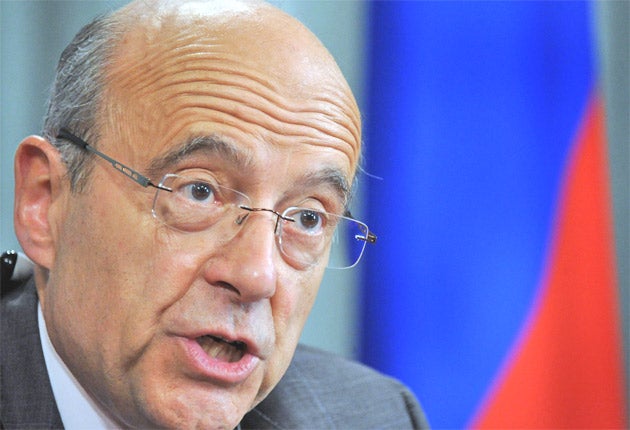France claims Gaddafi is prepared to sacrifice his grip on power
There has been no political upside to the Libyan action for Obama. Even the administration's friends say it has gone on far longer than the White House anticipated

Your support helps us to tell the story
From reproductive rights to climate change to Big Tech, The Independent is on the ground when the story is developing. Whether it's investigating the financials of Elon Musk's pro-Trump PAC or producing our latest documentary, 'The A Word', which shines a light on the American women fighting for reproductive rights, we know how important it is to parse out the facts from the messaging.
At such a critical moment in US history, we need reporters on the ground. Your donation allows us to keep sending journalists to speak to both sides of the story.
The Independent is trusted by Americans across the entire political spectrum. And unlike many other quality news outlets, we choose not to lock Americans out of our reporting and analysis with paywalls. We believe quality journalism should be available to everyone, paid for by those who can afford it.
Your support makes all the difference.France has received "contacts" from Tripoli which indicate that Muammar Gaddafi is ready to leave power, the French foreign minister said yesterday.
Alain Juppé was speaking before a vote in the French national assembly, which overwhelmingly approved a continuation of France's large contribution to Nato air-raids on Libya.
"There are, indeed, contacts," he said. "But it's not yet a true negotiation. We receive messengers who say, 'look here, Gaddafi is ready to leave. Let's talk.'"
Similar messages went to Turkey and the United Nations, he said, but there was no question of a ceasefire.
US President Barack Obama backed Russia's peace efforts.
White House spokesman Jay Carney said Mr Obama told his Russian counterpart, Dmitry Medvedev, in a phone conversation this week that he appreciated Moscow's initiative to end the war on condition the result was democracy for Libya and the ouster of Gaddafi. France has sent out rather mixed messages in recent days, suggesting at first that Nato might soften its insistence that Gaddafi must quit, before insisting the position was unchanged.
Mr Juppé said yesterday that, despite media reports suggesting "deadlock", the situation within the Gaddafi power structure in Tripoli was changing. "There is a consensus on how to end the crisis, which is that Gaddafi has to leave power. That (consensus) was absolutely not a given two or three months ago. The question is no longer whether Gaddafi is going to leave power, but when and how."
There has been no political upside to the Libyan action for Mr Obama. Even friends of the administration privately admit that it has gone on far longer than the White House anticipated.
Opening the debate in the French national assembly, prime minister Francois Fillon, said Nato operations over Libya had been a success. The Nato action has "constantly moved in the right direction" since it began on 19 March, he said.
"The free Libyan forces are gaining ground everywhere," he added.
The main opposition party, the Socialists, agreed to vote with the centre-right government to continue the Nato operation despite what it described as "poor planning" in the actions so far.
Join our commenting forum
Join thought-provoking conversations, follow other Independent readers and see their replies
Comments